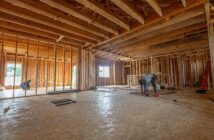A grant of close to $10.3 million will support a four-year research project focused on transforming the construction sector in New Zealand using Construction 4.0 approaches

HERA, the heavy engineering research association, has been successful in the 2022 round of the prestigious Endeavour Fund, which supports important scientific research projects seeking to address some of our biggest challenges.
Fundamentally, its project will improve productivity for the construction sector more broadly, with key outcomes including better economic performance, building and infrastructure affordability, and a larger workforce which is more skilled, innovative, and digitally literate.
“Our research team is both excited and thankful that the Science Board, assessors and the Minister of Research, Science and Innovation appreciate the significant contribution this project will make to the sector and New Zealand economy,” HERA Chief Executive Troy Coyle says.
“This programme not only addresses key challenges identified by our members and wider industry, but will be world-leading in creating data-driven decision-making for the future of construction.
“Currently there is a profound limitation in the way we perform construction in Aotearoa New Zealand. Complex decisions are being made based on simple data inputs and in linear silos with little inter-connection or data-derived decision support.
“This project will improve design to construction (and beyond) by bringing together industry and a team of global experts rigorously vetted, who will use complexity science to build upon developing nascent global Construction 4.0 knowledge.
“We also recognise the Science Board’s focus on Vision Mātauranga as it is something that aligns strongly to our own commitment in this space. We see this as an opportunity to bring a more holistic approach to the key components of the program of Industry 4.0, sustainability and mātauranga Māori.
“Our linkages internationally, to industry, and to existing research programmes will ensure project outcomes avoid redundancy and are international best practice.
“Informed by experts in Mātauranga Māori and its interface with engineering, and by specialists in sustainability and resilience in the built environment, it makes this research unique globally and aligned to social outcomes and intergenerational wellbeing.
“A core research theme will focus on technology transfer in traditional industries and policy development and implementation, to ensure that the project outcomes are readily adoptable.”
The Construction 4.0 framework and guidelines developed in the HERA project will focus on a series of nationwide sector-driven benefits:
• Better economic performance.
• Improved productivity in the construction sector.
• Building resilience and performance within environmental limits.
• Building and infrastructure affordability.
• Interfaces with indigenous knowledge – mātauranga Māori.
• Management of complexity and reduction of uncertainty.
• Enhancement of information exchange and communication between project stakeholders to increase productivity and quality of output.
Part of the Ministry of Business, Innovation & Employment, the Endeavour Fund plays a unique role in the science system. It is the nation’s largest contestable funding system to select excellent research proposals that will provide the highest potential impacts across a range of economic, environmental and societal objectives to transform the future of New Zealand.
In this funding round, the Science Board allocated $236.5 million to 71 projects. Among the 112 research programme proposals assessed, 45 were assessed for impact, and HERA’s proposal was one of 20 to be approved for investment.






